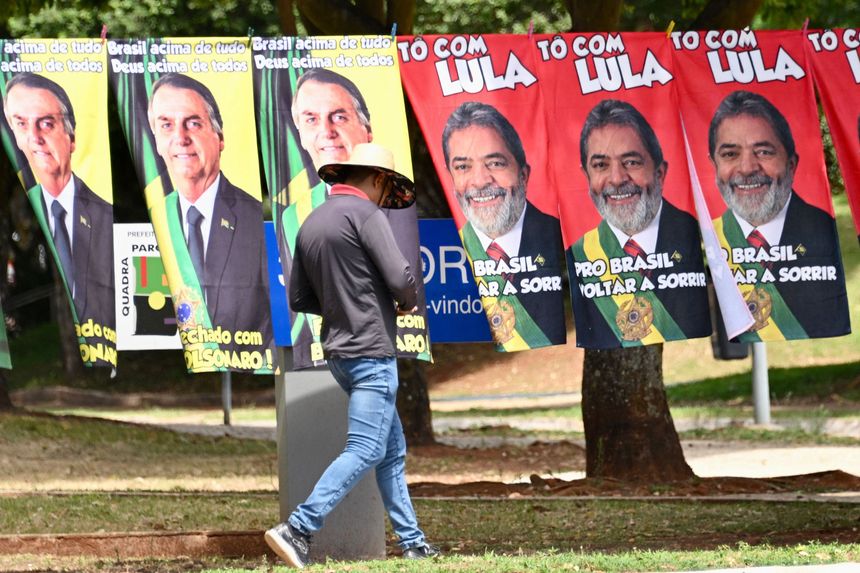Towels with the images of presidential candidates Jair Bolsonaro and Lula da Silva are seen for sale at a street, Brasilia, Sept. 27.
Photo:
evaristo sa/Agence France-Presse/Getty Images
When Brazilians vote Sunday to choose their next President, the stakes will be high for South America’s largest democracy—and for the Western Hemisphere. There are multiple candidates on the ballot, but this is a two-man race: Two-term former president
Lula da Silva,
a leftwing populist, is challenging center-right President
Jair Bolsonaro,
who is seeking a second term. If neither one receives better than 50% of the vote, there will be a runoff on Oct. 30.
Leftwing populism has been on the move in Latin America since Venezuela’s
Hugo Chávez
took power in 1999. Socialists have sometimes used their electoral popularity to steamroll democratic institutions and hang onto power. From Argentina to Mexico, the red wave has delivered less liberty and more hardship.
Mr. Bolsonaro is a former army captain and conservative, who won in 2018 on a promise to end corruption and reduce urban crime. His brash and politically incorrect style, and his clashes with an activist Supreme Court, have made him a champion of traditionalists and a target of the country’s powerful leftist press. When he rhetorically down played Covid-19, his critics said it showed a lack of empathy.
But his economic team has improved Brazil’s investment climate, opened the telecom market, and rescinded cabotage laws that restrict trade. Spending has been restrained even as transfers to the poor have increased.
Mr. da Silva is a leader of the international left, having founded with
Fidel Castro
the São Paulo Forum, a regional conference of left-wing parties, after the fall of the Berlin Wall. He held the Brazilian presidency from 2003-2010, when he was term-limited. But his party remained in power under…
Click Here to Read the Full Original Article at RSSOpinion…

